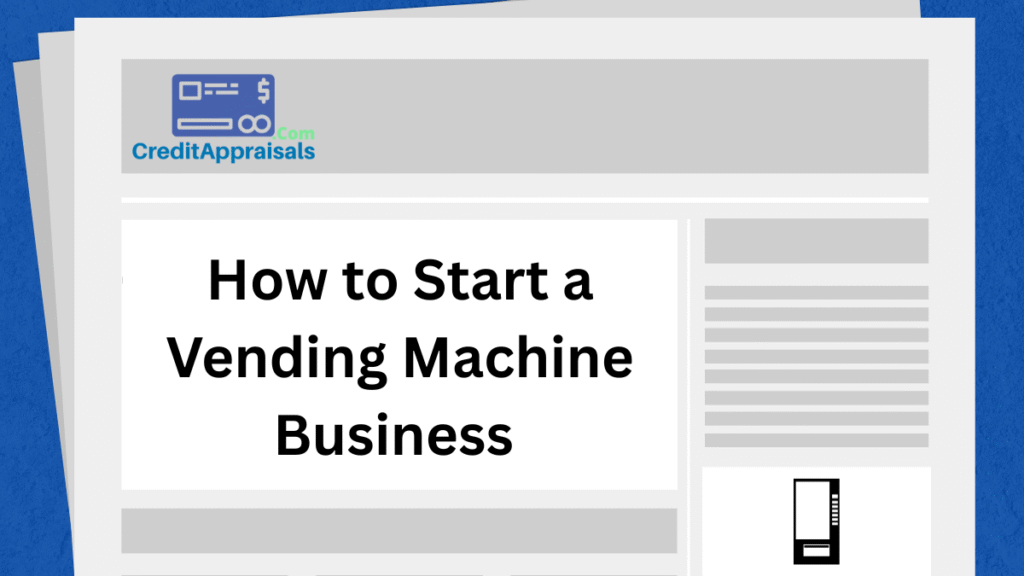Starting a vending machine business can be a low-cost way to earn passive income. It is flexible, scalable, and doesn’t require much staff or overhead. But like any business, it takes research, planning, and strategy to make it work. If you are thinking about jumping in, here is a step-by-step guide to help you get started.
Understand How the Vending Business Works
Before buying a vending machine, you need to know how the industry operates. Vending machines generate revenue by selling snacks, drinks, or other items like hygiene products. The owner makes money based on the difference between product costs and the sale price. The best machines are placed in high-traffic areas like offices, schools, or gyms.
Some vending machine owners manage everything themselves. Others work with suppliers or hire people to refill and maintain the machines. The level of involvement depends on your time and goals. If you want full control and higher margins, you will do most of the work. If you want more hands-off income, you can hire help or contract it out.
Decide What Type of Vending Machine You Want to Operate
There are several types of vending machines. Some sell cold drinks. Others offer snacks, hot beverages, or non-food items like electronics or beauty products. There are even specialized machines that sell CBD products or mini toys.
Start by choosing a category you are comfortable managing. Drink and snack machines are popular and easy to understand, but they are also competitive. More unique items might help you stand out, but they may be harder to stock or require permits.
Think about the environment too. A vending machine in a factory might do better with energy drinks and salty snacks. A machine in a wellness center might need healthier options. Match your machine’s product offering to the location and its audience.
Research Legal Requirements and Permits
This is where many beginners get tripped up. Running a vending business might seem simple, but you still need to follow local laws. You may need a business license, a seller’s permit, or a food-handling certificate depending on what you sell and where.
Some cities have health regulations that apply to vending machines with food or drink. Others require a permit for each location you operate in. You will also need to collect and report sales tax, which varies by state.
Make sure you research your city and state rules before you spend money on machines or supplies. Do not assume you can just place a machine anywhere. Failing to get permits can lead to fines or having your machines removed.
Choose the Right Locations
Finding the right spot for your vending machine is critical. A good location can mean steady, reliable income. A bad one could leave your machine untouched for days.
Start by scouting local businesses, schools, apartment buildings, and gyms. Look for places with high foot traffic and limited access to snacks or drinks. Then approach the owner or manager with a short pitch. Be ready to explain the benefits of having your machine on-site. Offer a small cut of the revenue or a monthly rental fee if needed.
Do not rely on cold calling alone. Build relationships with local business owners. Attend networking events. Ask friends and family if they know of any opportunities. Once you land a few locations, word of mouth can help you expand faster.
Buy or Lease Your First Vending Machine
You can buy vending machines new or used. New machines can cost between $2,000 to $5,000 depending on the features. Used machines can be much cheaper, sometimes under $1,000. But used machines might require repairs or upgrades.
There is also the option to lease. This means paying a monthly fee for the machine rather than buying it outright. Leasing helps reduce upfront costs but may end up costing more in the long run.
Start small. One or two machines are enough to test your system. Make sure they work reliably, accept multiple forms of payment, and are easy to refill and service. Modern machines that accept credit cards and mobile payments tend to earn more than those that take only coins or cash.
Stock the Right Products
Choosing what to stock depends on your audience. Office workers might prefer coffee, bottled water, and protein bars. Students might go for chips, candy, and soda. Test different products and track sales. Over time, you will learn what sells best.
It is smart to start with a mix of best-selling brands and lower-cost alternatives. This lets you keep profit margins healthy without losing customers. Keep an eye on expiration dates and rotate inventory as needed.
If possible, buy your inventory wholesale. Many vending machine operators use warehouse clubs or food service suppliers. Others partner with local brands to offer unique products.
Set Your Prices and Track Your Margins
Pricing is a balancing act. You want to make a profit but not scare away customers. Look at what similar machines charge in your area. Then adjust based on your costs and desired margin.
A common rule of thumb is to aim for 50 percent margins. So if a soda costs you $0.75, consider selling it for $1.50. Make sure to factor in travel time, electricity, and any commission you owe to the property owner.
Use a spreadsheet or vending software to track sales and expenses. This helps you identify which products perform well and which are not worth restocking.
Service and Maintain the Machine
Even the best machine won’t earn money if it’s out of order. You need to check your machines regularly. Restock when items run low. Clean the outside and remove trash nearby. Respond quickly if something breaks.
If you are managing multiple machines, it helps to create a weekly schedule. Prioritize your highest-earning machines. Some vending owners visit once a week. Others check in every few days depending on traffic.
Routine service keeps your machine reliable and your customers happy. Broken or empty machines are a quick way to lose business and hurt your reputation.
Scale Up With Caution
Once you are making money with your first machines, it can be tempting to buy more right away. But scaling too fast can lead to problems. You might end up with too many machines and not enough time or cash flow to manage them.
Focus on making each machine profitable. Streamline your route. Find the best suppliers. Use what you learn to improve the next location.
When you are ready to grow, consider hiring part-time help or outsourcing service routes. There are also vending franchise models that offer support with branding, locations, and product sourcing. These come at a cost but can speed up growth if you are serious about expanding.
Is It Worth It?
A vending machine business can be profitable if you treat it like a real business. The margins are decent, especially if you keep costs low and manage inventory well. But it is not fully passive. You will be driving, cleaning, restocking, and repairing machines regularly.
Expect a learning curve. Not every location will be a winner. Some machines will break. Some deals will fall through. But if you stay consistent and pay attention to what works, it is possible to build a vending business that generates real income with less overhead than a traditional storefront.
The key is to start small, keep your systems tight, and scale smart. Success takes effort, but for those willing to put in the work, vending can be a surprisingly rewarding venture.

